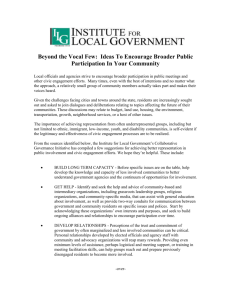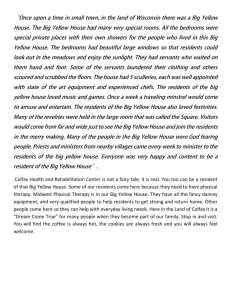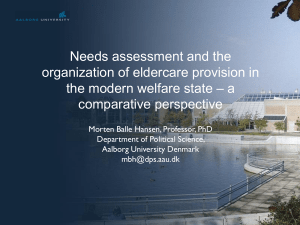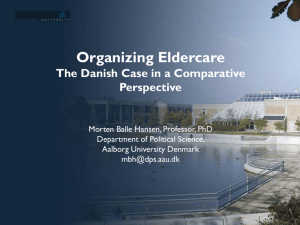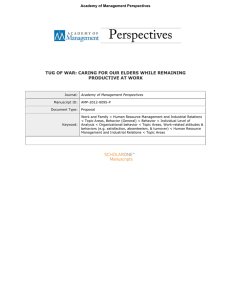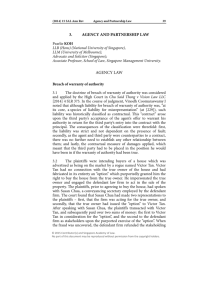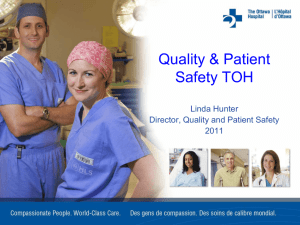Go for 'retail politics'
advertisement
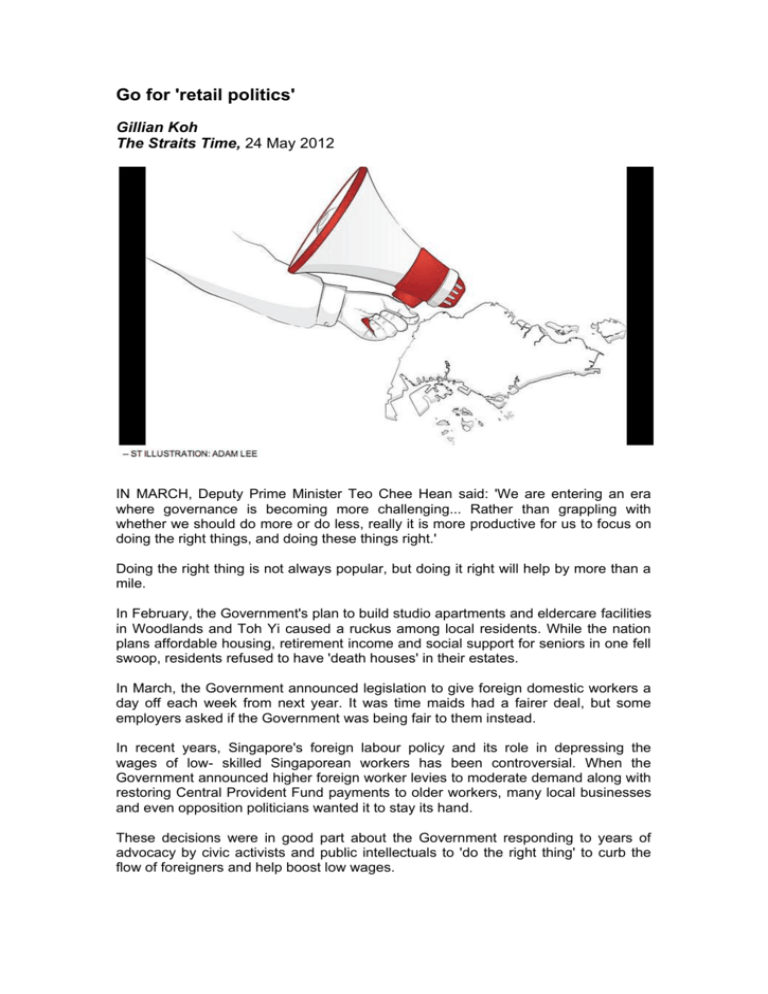
Go for 'retail politics' Gillian Koh The Straits Time, 24 May 2012 IN MARCH, Deputy Prime Minister Teo Chee Hean said: 'We are entering an era where governance is becoming more challenging... Rather than grappling with whether we should do more or do less, really it is more productive for us to focus on doing the right things, and doing these things right.' Doing the right thing is not always popular, but doing it right will help by more than a mile. In February, the Government's plan to build studio apartments and eldercare facilities in Woodlands and Toh Yi caused a ruckus among local residents. While the nation plans affordable housing, retirement income and social support for seniors in one fell swoop, residents refused to have 'death houses' in their estates. In March, the Government announced legislation to give foreign domestic workers a day off each week from next year. It was time maids had a fairer deal, but some employers asked if the Government was being fair to them instead. In recent years, Singapore's foreign labour policy and its role in depressing the wages of low- skilled Singaporean workers has been controversial. When the Government announced higher foreign worker levies to moderate demand along with restoring Central Provident Fund payments to older workers, many local businesses and even opposition politicians wanted it to stay its hand. These decisions were in good part about the Government responding to years of advocacy by civic activists and public intellectuals to 'do the right thing' to curb the flow of foreigners and help boost low wages. When temperatures rose on these issues, some natural allies spoke up but with not nearly the same vigour as the naysayers. It would serve these causes well if civil society members share with the general public how these policies promote social inclusion, a fair society and ultimately the greater good. It builds trust between state and civil society for each to acknowledge the other's part in taking such agendas to fruition. These leaders should have the courage of their convictions to persuade the public to adopt a 'big citizen mentality', above their personal interests, for broader societal goals. Stakeholders such as the Toh Yi and Woodlands residents, the maids' employers and businesses worrying about the labour situation all need to be directly engaged by political and civic leaders. Leaders need to run ahead of the curve in engaging constituents before decisions are made. Conversely, the situation becomes forced, adversarial and defensive when it is a little too late. Leaders must be comfortable with the 'retail politics' of sitting in a roomful of people with diverse interests, facilitating discussions on how to find common ground on community concerns. Member of Parliament Ellen Lee worked out how a proposed eldercare facility in her Woodlands constituency would be built and run, with even a community garden to address residents' unhappiness. But could such discussions - critical for intelligent design and implementation of policy - have taken place before pronouncements were made? The challenge is to help people see beyond perceived immediate or short-term loss to achieve a far greater future gain. Any national long-term plan is always 'too far removed' from daily lives. But if there is a predetermined time and place, people can prepare themselves to consider such questions. This is a 'community dance' that political, policy and civic leaders must conduct with residents and citizens, one confidence- building step after another. It is a new political culture that has to be nurtured, especially in today's 'new normal' in politics. There is a premium on inter-personal communication and active listening skills. There is no guarantee that it will be conflict-free. But stakeholders will be invested in the process, and can reasonably expect others to act in good faith. Those not adjusting to the working consensus can be worked around while their views are acknowledged. This process allows a community to confront the divergent, competing demands that all policy questions raise. It is not some government agenda to 'inflict' eldercare facilities, childcare facilities or even rental flats upon a community, but it should be made clear that such programmes serve real needs of real people. The recent cause celebre in civil society is of course the Bukit Brown saga. It proves the point about properly scoping the public engagement for success, in spite of the state and civil society engaging each other. The Government was seeking to minimise harm in building a road through Bukit Brown Cemetery, whereas civil society questioned having such a road in the first place. Early notice of such plans, along with rigorous projections on our medium-term land transport needs, long-term housing needs and exploring technical options would have allowed a discussion about the area's 40-year housing plans and that most profound question: How many people are we housing in Singapore anyway? The relationship between civil society and the state is not a gap too far to bridge. However, as soon as the North-South Expressway was announced in January last year, one suspects the die was cast. Doing it right might have allowed us to do what was right by many more counts than we can imagine. Just think of more complex policy issues like integrating the foreigners we have in our midst. These processes simply cannot be mandated even as the Government funds programmes and incentives for workers to learn English. There is very little hardware to trade over, yet it cuts to the heart of how we define a 'Singaporean' and Singapore. As trust is strengthened among government and people groups, each has the right to ask how our common good is best served. A good process helps participants see beyond immediate loss to the future gain, to own the definition of what will serve the real needs in the community and country. Now isn't that a vision to stir the soul? The writer is a senior research fellow at the Institute of Policy Studies.



